It’s no wonder there’s so many movies, books, and tv shows about dating difficulties and relationship blunders! Romantic feelings are confusing — especially when you’re navigating them for the first time.
As of 2021, more than 11 million adults were paying dating sites like Match.com for assistance in the search for a soulmate. Even with years of experience navigating feelings and relationships, adults still need help—so surely teens dating for the first time do, too!
Having open, honest conversations about boundaries, sex, and consent can help teenagers understand how to have healthy relationships. So where do you start? The first thing is to make sure your teen understands consent. Consent is an important aspect of respect and good communication in a relationship.
Starting with the basics—what is consent?
Consent is:
|
Consent is not:
|
Talking to your teens about consent
It’s important that youth not only understand what consent is, but how to both ask for it respect it. Understanding consent can also help give them the confidence they need to say ‘no.’ Here are four conversation starters to help you teach your kids about consent:
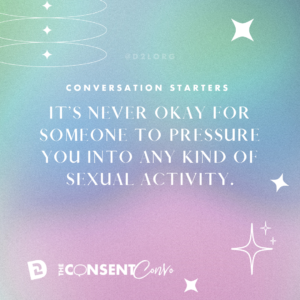
It’s never okay for anyone to pressure you into any kind of sexual activity. Teach your teens it’s never okay for someone to pressure them into any kind of activity they aren’t comfortable with. Likewise, it’s never okay to pressure someone else to engage in any kind of activity. Reinforce the idea that just because their friends may be doing it, doesn’t mean they have to if they aren’t ready.
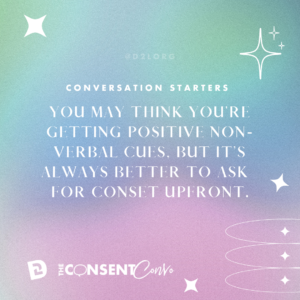
You may think you’re getting positive non-verbal cues. But it’s always better to ask for consent upfront. There is not always a conversation before kissing, cuddling, or touching. People communicate non-verbally, through body language; however, non-verbal communication can lead to misunderstandings. Teach your teen it’s better to ask for consent upfront, to make sure both parties are consenting. If the non-verbal cues are creating doubt, it’s not consent.
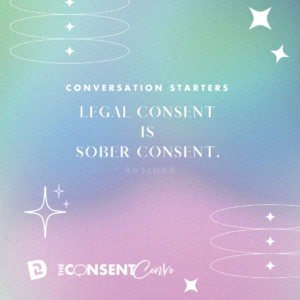
Legal consent is sober consent. As teens get older, they may attend parties where drugs or alcohol are being used. Make sure they know legal consent is sober consent. Someone who is intoxicated cannot give consent.

You can always change your mind and say ‘no.’ Even if you originally said ‘yes.’ Let your teen know they always have the right to change their mind—and that their partner does, too! Encourage your teen to check in with themselves and their partner: “Is this something I want to do?” “Do I feel safe?” “Do I feel pressure?”
As kids get older, it’s important to have more honest, empowering conversations about boundaries. Consent can be one of those conversations. Even if it feels awkward or difficult (because teenagers), open conversations with you, the safe adult in their life, can help them navigate romantic relationships in a positive way.






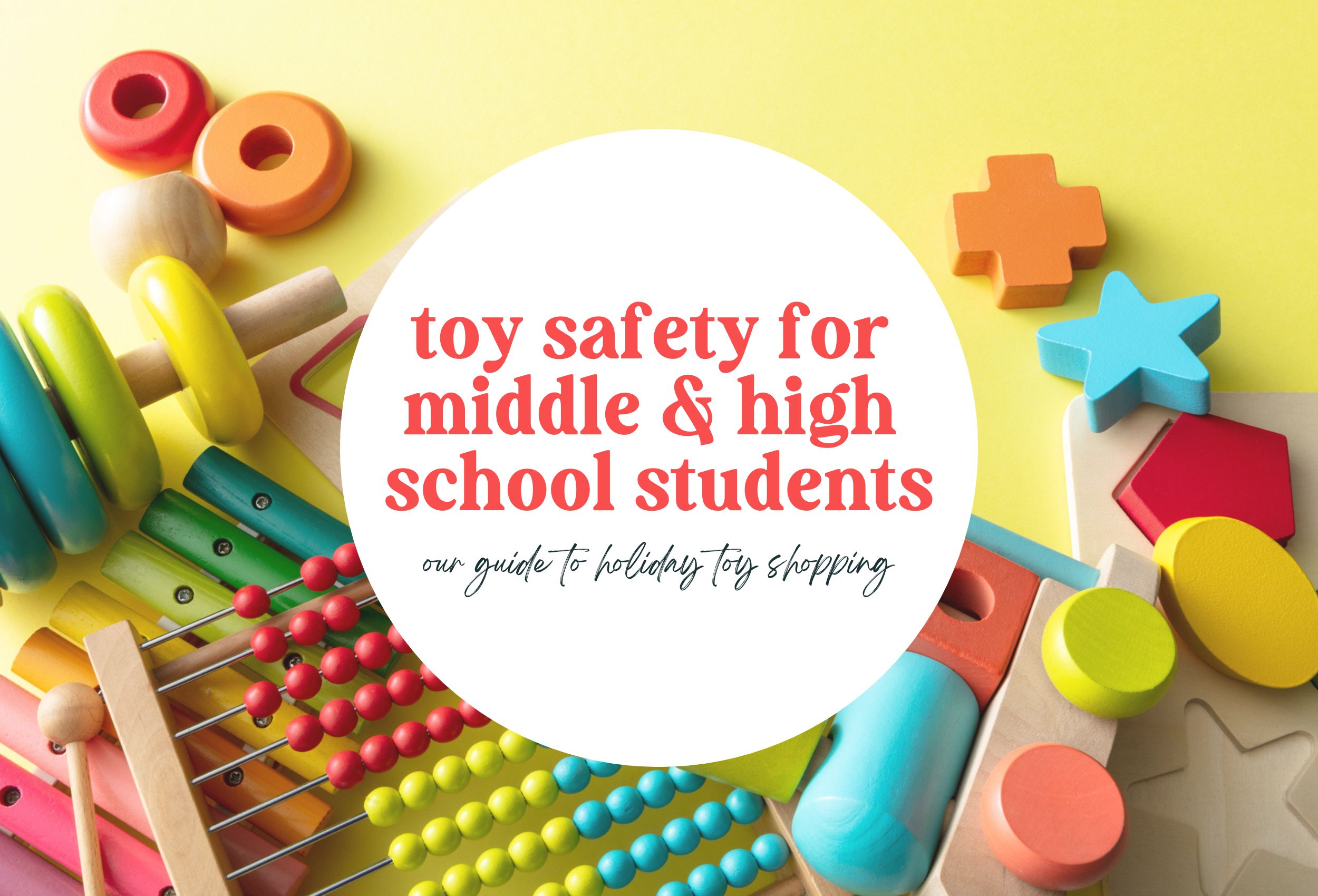


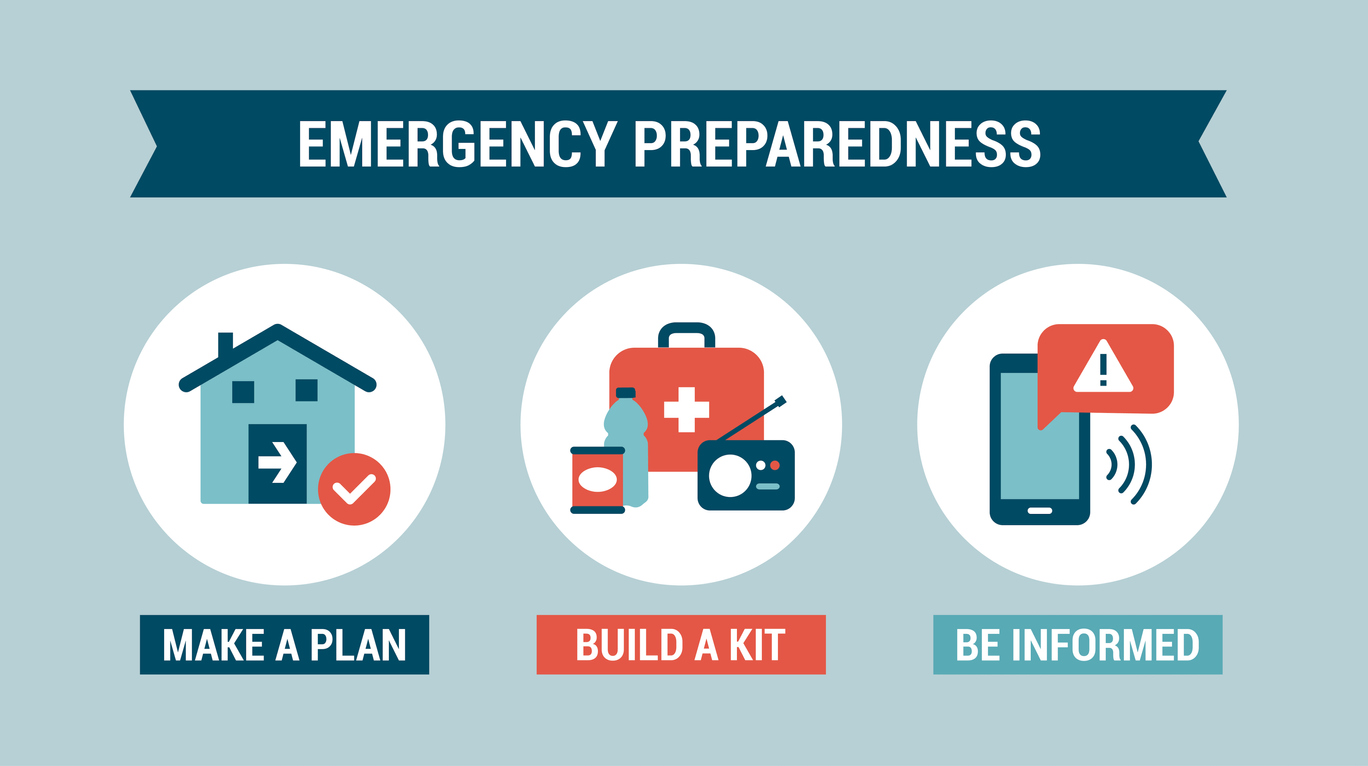


Comments are closed.